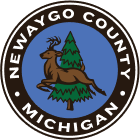Sara Title III Emergency Planning
SARA Title III requires that communities develop emergency response plans to address the accidental release of an extremely hazardous substance (EHS) from a site within the community. Planning for response to accidental hazardous materials spills or releases is handled at the local level by Local Emergency Planning Committees (LEPCs) and fire departments. Hazmat planning assistance is provided to these and other local organizations through the Michigan State Police Emergency Management and Homeland Security Division (MSP/EMHSD).
Emergency Planning for Michigan Communities LEPC and Fire Departments Video
SARA Title III 302 & 312 Plans
Off-site response plans for all facilities that have been identified as meeting SARA Title III 302 guidelines have been developed and are revised annually by the Emergency Services Department, Local Emergency Planning Team, Site Coordinator, and local fire department. These plans are additionally designed to meet Firefighter Right-To-Know and MIOSHA HAZWOPER guidelines.
The following facilities have been identified as containing Threshold Planning Quantities (TPQ) of Extremely Hazardous Substances (EHSs) as identified by the Environmental Protection Association (EPA). As such, off-site response plans have been developed and are annually revised by the Emergency Management Department, Emergency Planning Committee, Site Coordinator, and local fire department. These plans are additionally designed to meet Firefighter Right to Know and MIOSHA HAZWOPER requirements.
- CERES SOLUTIONS CO-OP (FREMONT)
- NESTLE GERBER PRODUCTS (FREMONT)
- MAGNA MIRRORS (NEWAYGO)
- AT&T (GRANT)
- AT&T (NEWAYGO)
- AT&T (FREMONT)
- AT&T (WHITE CLOUD)
- FRONTIER COMMUNICATIONS (HESPERIA)
- CHARTER COMMUNICATIONS (GRANT)
- HARBISON WALKER INTERNATIONAL (WHITE CLOUD)
- CEDAR VALLEY PACKING (GRANT)
- RICE LAKE FARMS (GRANT)
- WILBUR-ELLIS (GRANT)
- TRANS-CANADA GOODWELL COMPRESSOR STATION (WHITE CLOUD)
Under the Emergency Planning and Community Right-to-Know Act (EPCRA) of 1986, also known as the Superfund Amendments and Reauthorization Act (SARA), which was passed by Congress after the Bhopal incident, members of the local community have a right to know what chemicals are located within the community. As such, community members may request general information about what hazardous substances each site manufactures, uses, or stores. However, as all local hazardous materials site plans contain personal contact information, site specific maps, and other supporting propriety documentation, the plans themselves are considered exempt from the Michigan Freedom of Information Act (MCL 15.243y) under the Michigan Anti Terrorism Act (MCL 750.543r) under the Michigan Anti Terrorism Act (MCL 750.543r).
For additional information, please visit the Michigan State Police website at: https://www.michigan.gov/msp/0,4643,7-123-72297_60152_66817—,00.html


